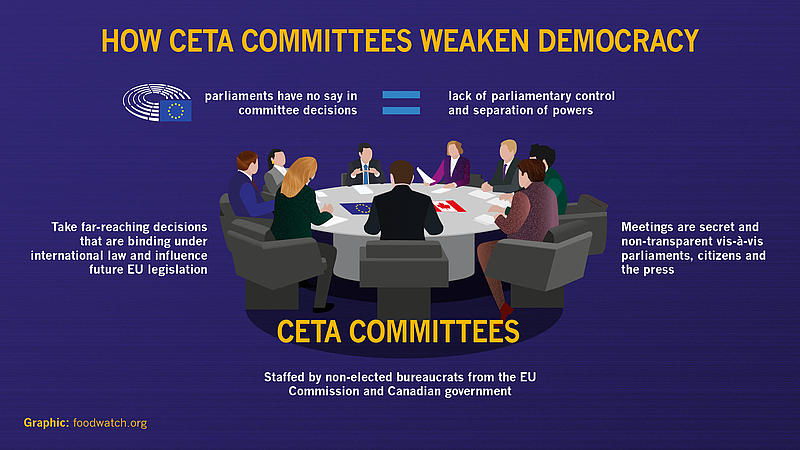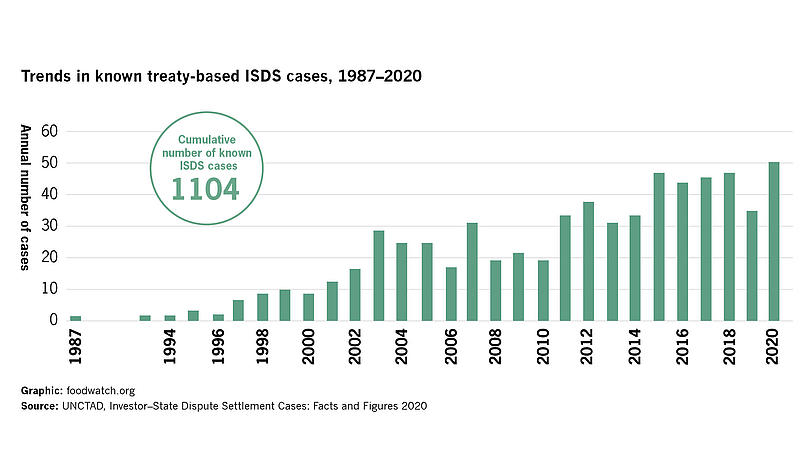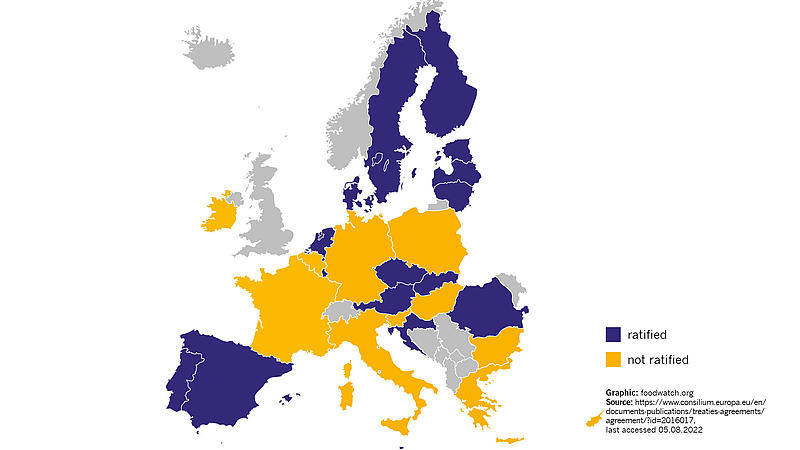foodwatch has released a new report studying the major threats the CETA trade agreement poses for fhealth, the environment, consumer protection and democracy. It gives detailed examples of how CETA can weaken EU regulation on pesticide residues, hygiene controls or import rules for Genetically Modified Organisms (GMO) and likens the treaty to a Trojan Horse:
Comprehensive Economic and Trade Agreement, sounds harmless and somewhat technical. The truth is, CETA is a Trojan horse. At first sight, it decreases tariffs and fosters trade between the parties. But look again: CETA is a threat to consumers’ and environmental protection standards.International Campaign Management Director
CETA weakens the European Parliament
CETA side-lines the European Parliament (EP) and instead gives more power to governments and bureaucrats. Further, it provides a perfect setting for lobbyists, since all its committees work in secret, keeping locked all detailed minutes on their negotiations. Finally, the agreement will give corporates the power to sue governments, e.g. when they adapt new regulation to tackle the challenges of climate crisis.
Over the past five years, most parts of the CETA agreement have been provisionally applied. But the trade agreement has not yet been ratified by all EU member states. Parliaments in France, Germany, and Italy, are among the 11 that still have to give their agreement.
CETA is outdated and must be stopped. foodwatch calls on the European Commission, the governments, and parliaments of all EU member states to suspend CETA and negotiate a new trade agreement with Canada.
Three major threats
The report focuses on three major threats of the agreement:
-
CETA creates a parallel justice system for corporations.
CETA establishes an Investment Court System (ICS) that enables international corporations to sue governments when new laws go against their future profit interests. This is especially threatening progressive legislation, e.g. to react on the climate crisis or to protect consumers health. This alone is reason enough why CETA should not be ratified. Despite some attempts of the European Comission to limit the Scope of the ICS, foodwatch and other organisations doubt that this will be sufficient.
-
CETA overrides basic democratic principles.
CETA committees have extensive powers and can prepare far-reaching, internationally binding decisions on very sensitive issues such as meat hygiene, pesticides and Genetically Modified Organisms (GMOs). However, their decisions are not controlled by the EP, they are staffed with non-elected officials from the EU and Canada and the contents and minutes of their negotiations are secret for the Public and even the EP. This lack of transparency, gives the industry lobby an easy ride.
-
CETA undermines consumers’ and environmental protection
According to the Precautionary Principle, if there are indications that a substance, e.g. a pesticide, may be harmful to health or the environment, the authorities can preventively ban it. The burden of proof lies with the producer. CETA puts this principle in danger, because the Canadian government pressures Europe to move away from the precautionary principle and recognise Canada’s (lower) standards as equivalent.
Sources and additional information
- foodwatch-report “CETA – An attack on health, the environment, consumer protection and democracy”
- Draft decision of the CETA Joint Committee on the interpretative declaration
- Legal statement on the Interpretative Declaration. This statement from the Umweltinstitut München doubts whether the declaration will be sufficient



